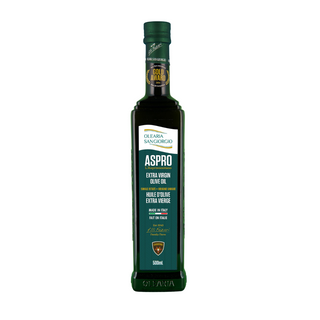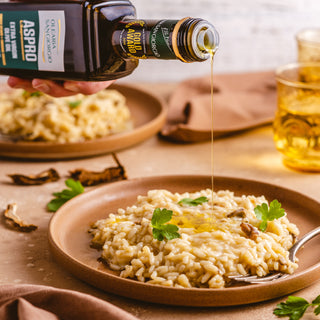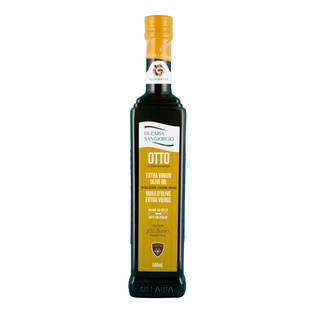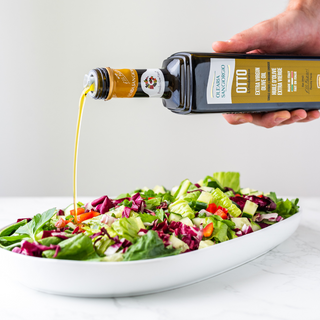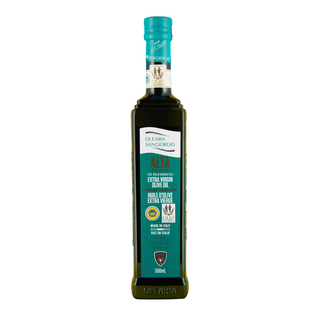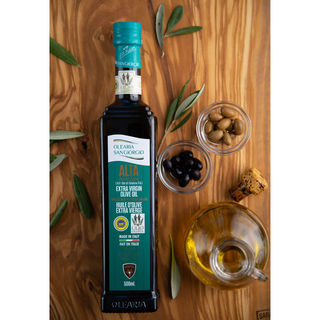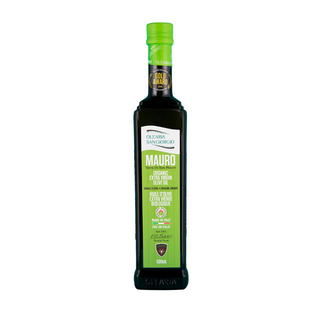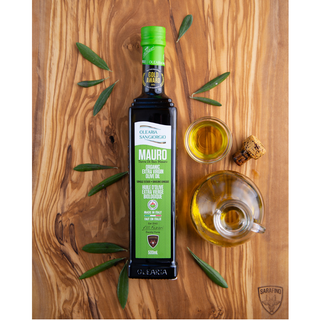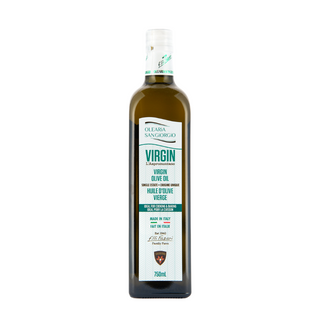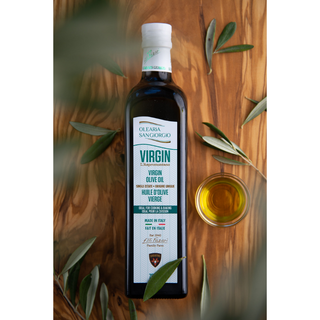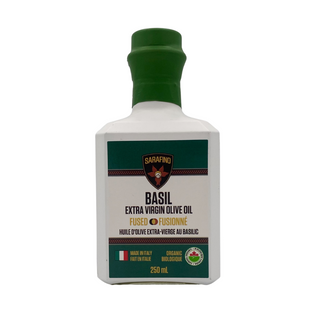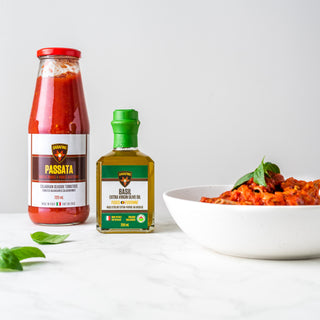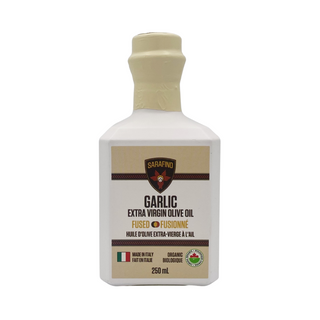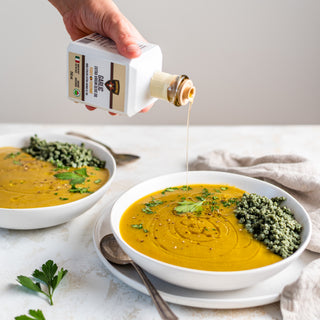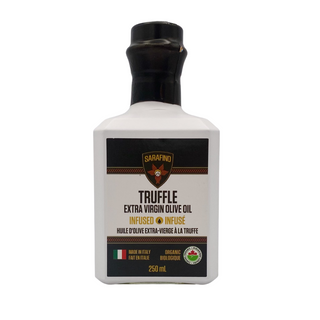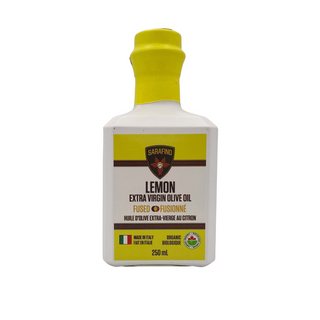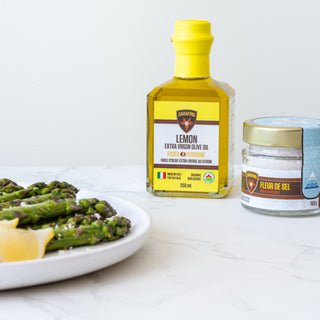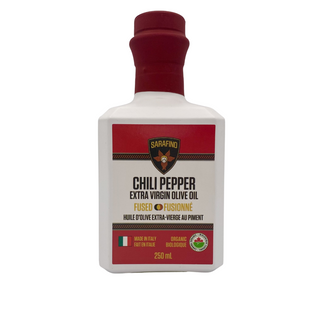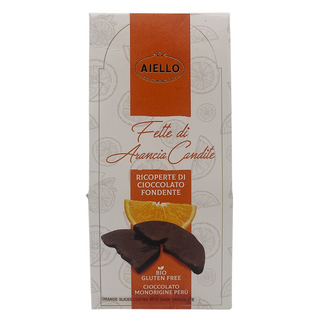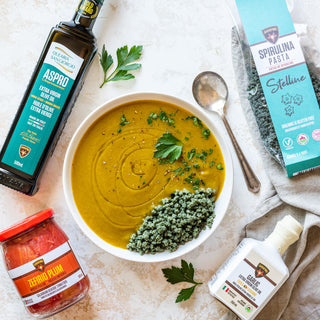
LEARN SARAFINO
Health Facts
Olive Oil Health Facts
It is important to note that as a result of corruption in the olive oil industry, much of what is found in our grocery stores may not be as it appears. There is great financial benefit to be reaped from the adulteration of olive oil products. This has much to do with the simple relationship between the supply of olives grown on earth and the global demand for their oil. If you wish to know more about this topic, we urge you to do your own research into fraud in the industry. The health benefits listed on this page do not pertain to all “olive oils”. They do however pertain to unadulterated, unrefined and unfiltered Virgin and Extra Virgin Olive Oils.
Our primary recommendation is of course our own olive oil as we are able to vouch for its quality. However, if you are looking for real Virgin or Extra Virgin Olive Oil we recommend you follow the guidelines on the Interactive Product Label section when shopping.
Truth In Olive Oil –with Tom Mueller (an informative podcast on the health benefits of olive oil and much more!)
In ancient times, olive oil was used as a hair colouring and body preservative, for healing stomach, liver and intestinal ailments, to heal sun burnt skin, to protect the skin from the sun’s rays and as a massage oil for aching muscles.
Today, medical research has verified these beliefs with scientific evidence, and expanded on the medicinal application of olive oil into the realms of cardiovascular and circulatory illnesses.
Clinical and therapeutic studies have demonstrated that the particular relationship between both unsaturated and saturated fatty acids, and the micro components (tocopherols and polyphenols) that are naturally present in olive oil, give it a series of beneficial functions for the human body.
These include:
- Aids the digestive tract
- Stimulates the metabolism
- Delays the effects of cellular aging both internal and external
- Cholesterol reduction
- Prevention of gallstone formation
- Prevention of the oxidation of LDL cholesterol (known as the anti-oxidant effect)
- Reduction of arterial occlusion
- Reduction of arterial blood pressure
- Reduction of blood glucose levels
- Increased bile secretion
- Increased vitamin A, D and E absorption
- Prevention of arteriosclerosis
- Prevention of angina and myocardial infarct ‘heart attacks’
- External healing of burns, rashes, cuts and overall dryness
Fat is essential to your health because it supports a number of your body’s functions such as cell growth, the regulation of your body temperature, nutrient absorption, energy levels & the production of important hormones.
Lets face it. We need fats in our diet.
The key is to focus on eating the healthy fats and avoid the unhealthy fats.
Monounsaturated fat. This is a type of fat found in a variety of foods and oils. Studies show that eating foods rich in monounsaturated fats (MUFAs) improves blood cholesterol levels, which can decrease your risk of heart disease. Research also shows that MUFAs may benefit insulin levels and blood sugar control, which can be especially helpful in preventing or controlling type 2 diabetes.
Polyunsaturated fat. This is a type of fat found mostly in plant-based foods and oils. Evidence shows that eating foods rich in polyunsaturated fats (PUFAs) improves blood cholesterol levels, which can decrease your risk of heart disease. PUFAs may also help decrease the risk of type 2 diabetes. One type of polyunsaturated fat, omega-3 fatty acids, may be especially beneficial to your heart. Omega-3s, found in some types of fatty fish, appear to decrease the risk of coronary artery disease. They may also protect against irregular heartbeats and help lower blood pressure levels.
Foods made up mostly of monounsaturated and polyunsaturated fats are liquid at room temperature, such as olive oil.
Saturated fat. This is a type of fat that comes mainly from animal sources of food and has been wrongly accused for years!
Are saturated fats bad for you? Many doctors, nutritionists, weight-loss coaches, pharmaceutical companies, TV commercials and government sources say that saturated fats lead to chronic disease and early death.But Inuit eat whale blubber along with a diet comprised of 75 percent saturated fat. The Maasai in Kenya eat beef, drink cattle blood and lots of milk; in fact, two-thirds of this tribe’s traditional diet comes from saturated fat. Neither Inuit Eskimos nor the Maasai have developed heart disease or any other chronic health problems — as long as they don’t start eating Western-style junk food.
After decades of bashing saturated fat, the medical community was stunned by a 2010 study in the American Journal of Clinical Nutrition. In a research analysis, scientists discovered that there wasn’t enough proof to link saturated fat to either heart disease or stroke. It wasn’t the first time this fat had been vindicated: Four years earlier the Women’s Health Initiative study found that eating less saturated fat didn’t result in lower rates of heart disease or stroke. The 2010 analysis, however, was so big and so thorough — involving 21 studies and nearly 350,000 people — that it grabbed experts’ attention. “Everyone had just assumed that the evidence against saturated fat was strong,” says study author Ronald Krauss, MD, a professor of nutritional sciences at the University of California, Berkeley, who was surprised by the finding and the controversy it created. “We had to work hard to get our study published. There was an intrinsic mistrust of this kind of result.”
Researchers say there were even earlier clues that saturated fat didn’t deserve its reputation as top dietary villain. The decades-old “diet-heart hypothesis” — the idea that saturated fat is bad for the heart — was mostly based on animal studies and short-term trials that looked only at people’s cholesterol levels, not at whether they actually had heart attacks. “Those studies are great for making hypotheses but not for making widespread recommendations,” says Dariush Mozaffarian, MD, an associate professor of medicine and epidemiology at Harvard Medical School and a researcher of diet and heart health. “When we started getting evidence from longer trials and observations, we realized that the truth is more nuanced than we thought.”
What researchers discovered was that cutting out saturated fat didn’t make much difference, until you considered what people ate in place of it. Swapping animal fats for vegetable oils — for instance, using soybean oil instead of butter — appeared to lower LDL cholesterol levels and disease risk. But trading your a.m. bacon for a bagel didn’t do the trick. “When you replace saturated fats with refined carbs, your triglycerides can go up and your good HDL cholesterol can go down,” explains Alice H. Lichtenstein, the director of the Cardiovascular Nutrition Laboratory at Tufts University. High triglycerides and low HDL are risk factors for cardiovascular disease and criteria of metabolic syndrome, a cluster of health problems linked to diabetes and heart disease.
Eating less saturated fat doesn’t seem to help your weight, either. A study in The New England Journal of Medicine found that people on a low-carb diet shed pounds faster and had better cholesterol levels than those on a low-fat diet, even though the low-carb group was taking in relatively more saturated fat. This may be because people eating fewer carbs release less insulin, which may reduce fat storage, control hunger, and influence metabolism in a way that helps keep cholesterol in check.
Trans fat. This is a type of fat that occurs naturally in some foods, especially foods from animals. But most trans fats are made during food processing through partial hydrogenation of unsaturated fats. This process creates fats that are easier to cook with and less likely to spoil than are naturally occurring oils. These trans fats are called industrial or synthetic trans fats. Research studies show that synthetic trans fat can increase unhealthy LDL cholesterol and lower healthy high-density lipoprotein (HDL) cholesterol. This can increase your risk of cardiovascular disease.
Most fats that have a high percentage of saturated fat or trans fat are solid at room temperature. Because of this, they’re typically referred to as solid fats. They include beef fat, pork fat, shortening, stick margarine and butter.
from $12.00
- Unit price
- / per

from $12.00
- Unit price
- / per


from $12.00
- Unit price
- / per

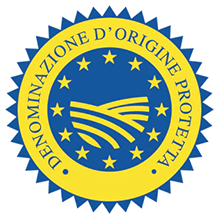
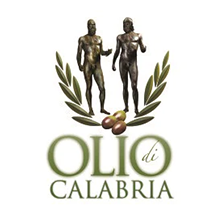
from $12.00
- Unit price
- / per


from $12.00
- Unit price
- / per

$20.00
- Unit price
- / per


$20.00
- Unit price
- / per


$28.00
- Unit price
- / per


$20.00
- Unit price
- / per


$20.00
- Unit price
- / per


$15.00
- Unit price
- / per



CHOCOLATE HEALTH FACTS
WHO CAN POSSIBLY RESIST A YUMMY PIECE OF CHOCOLATE, AND IF IT IS ACTUALLY HEALTHY EATING A DARK CHOCOLATE, THEN IT’S TOO GOOD TO BE TRUE!
Dark variety of chocolate, far from being a health peril is actually a nourishing and wholesome food for the body. According to latest medical research studies, health benefits of dark chocolate may truly boost human health. Dark chocolate is enriched with the health compounds, medically known as flavonoids that act as a traditional curative remedy for treating various body ailments.
Health benefits of dark chocolate:
Dark chocolate is rich in minerals such as magnesium and copper. These minerals aid in regulating normal blood pressure and subsequently maintaining proper heartbeat levels.
Eating a delicious piece of chocolate could possibly reduce stress levels; it works by stimulating the production of endorphin that may give rise to a happy feeling. In addition the dark chocolate variety contains stimulants such as theobromine and caffeine that are major stimulants.
Eating dark chocolate not only relaxes but also makes the blood vessels more flexible. It also boosts the functioning of endothelial cells which line the blood cells. It also decreases the risk posed by innumerable cardiovascular diseases.
Dark chocolates have been medically proven to reduce the bad cholesterol level in the human body significantly, up to 10 /12 percentage.
The two kinds of flavonoids present in chocolates are mainly Catechins and Epicatechins. Dark chocolate has more of Catechins, which boosts the human body immune system and possibly preventing major chronic ailments.
The flavonoids compounds are useful in treating anemic patients and those having poor dietary habits.
Dark chocolate is a potent antioxidant. Reports from National Institute of Food & Nutrition Research in Italy suggests that these antioxidants actually gulp up free moving radicals and other dangerous molecules that may be potential health hazards.
The serotonin level in the dark chocolates may act as an effective anti-depressant.
Intake of dark chocolate boosts the vascular health. It contains a lot of polyphenols and anti-oxidants.
The anti-oxidants present in dark chocolate help fight against pre mature aging and heart diseases.
One of the most exciting health benefits of dark chocolate is that it helps in enhancing the production of endorphin, which results in generation of feeling of pleasure in human beings.

